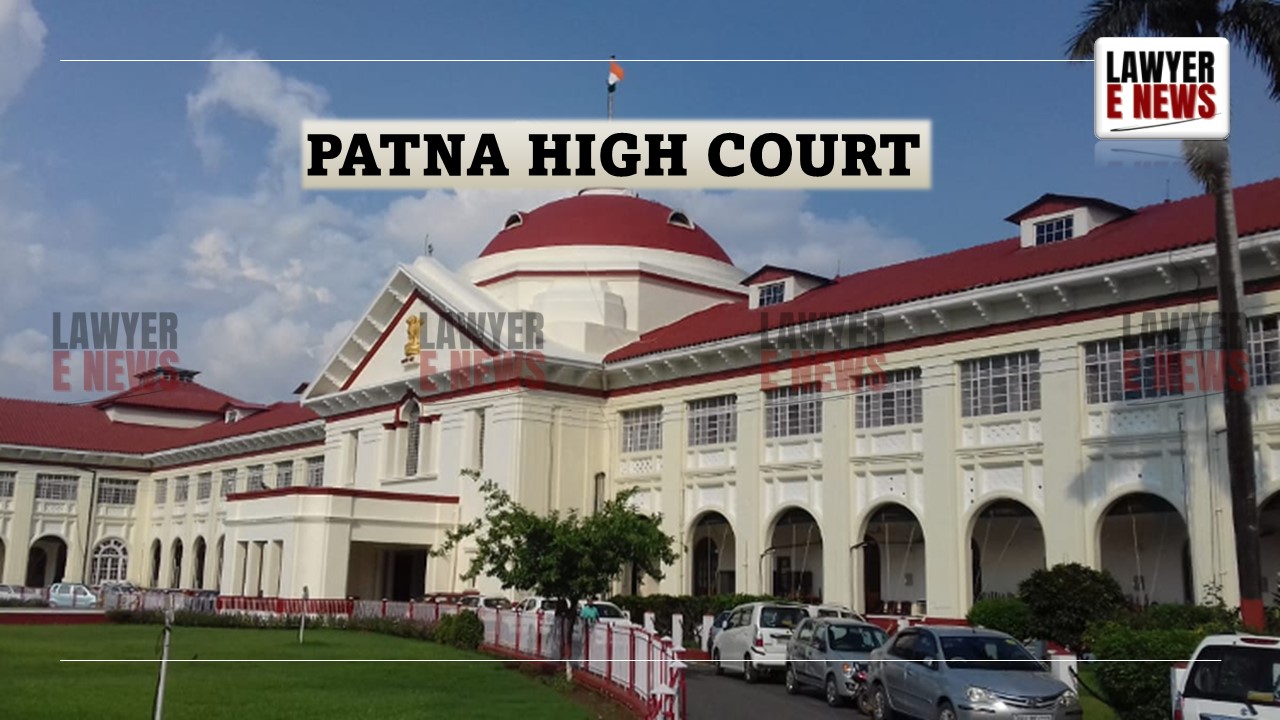-
by Admin
15 February 2026 5:35 AM



Civil Disputes Should Not Be Conflated with Criminal Offenses: Criminal Proceedings Quashed
, Patna High Court quashed criminal proceedings initiated under Sections 417 and 418 of the IPC. The court held that the dispute, arising out of a trademark license agreement containing an arbitration clause, was purely civil in nature and did not attract criminal liability. Justice Sandeep Kumar ruled that continuation of the criminal prosecution would amount to an abuse of the process of law.
"The arbitration clause, covering 'any doubt or question arising out of or incidental to the agreement,' is sufficiently broad to encompass the present dispute regarding alleged sub-standard medicines and consequential losses." [Para 46–47]
"Allowing continuation of criminal prosecution in a case of this nature would be tantamount to abuse of the process of law. Merely labeling a civil dispute as criminal does not make it so, particularly when no prima facie case of dishonest intention or fraud at inception has been established." [Para 40, 48]
"A mere breach of contract cannot give rise to a criminal prosecution for cheating unless a fraudulent or dishonest intention is shown at the beginning of the transaction." [Para 39]
The dispute arose between the petitioners, Directors of M/S Comed Chemicals Limited, and the respondent, The Afirst Lifescience Pvt. Ltd., a pharmaceutical exporter. The parties had entered into a trademark license agreement on March 6, 2013, under which the petitioners were to manufacture medicines bearing the respondent's trademark.
The complaint alleged that in 2015, the petitioners supplied sub-standard medicines, causing the respondent reputational and financial losses amounting to ₹25,00,000. The respondent accused the petitioners of breaching the agreement and intentionally damaging its goodwill. The Additional Chief Judicial Magistrate (ACJM), Patna, took cognizance of offenses under Sections 417 (cheating) and 418 (cheating with knowledge of wrongful loss).
The petitioners sought quashing of the criminal proceedings, arguing that the dispute was purely civil in nature, arising out of the agreement's terms, which included an arbitration clause. They contended that no prima facie criminal offense was made out.
The court determined that the dispute stemmed from alleged non-compliance with the terms of the trademark license agreement and the quality of manufactured medicines.
"The dispute between the parties appears to be purely of a civil nature. The allegations of manufacturing sub-standard medicines and causing losses are squarely covered by the agreement, which also includes an arbitration clause." [Para 38, 40]
Citing International Advanced Research Centre v. Nimra Cerglass Technics (2016) and Madhavrao Jiwaji Rao Scindia v. Sambhajirao Chandrojirao Angre (1988), the court emphasized that criminal liability should not be enforced in disputes that are essentially civil.
The respondent alleged that the petitioners acted with fraudulent intent to harm its business. However, the court noted that there was no evidence of dishonest intention at the inception of the agreement.
The court held: "It is not permissible for the respondent to turn around and allege an intention to cheat right from the beginning of their business relationship, which was cordial and satisfactory for years. Mere breach of contract cannot give rise to criminal prosecution unless fraudulent or dishonest intention is shown at the inception." [Para 40]
Citing A.M. Mohan v. State (2024) and Indian Oil Corporation v. NEPC India Ltd. (2006), the court underscored that conflating commercial disputes with criminal offenses is a growing misuse of criminal law.
The agreement included an arbitration clause covering disputes "arising out of or incidental to" the agreement. The court interpreted the clause as sufficiently broad to include the present dispute over the alleged sub-standard quality of medicines.
The court held: "The arbitration clause is wide enough to cover the present dispute, and therefore, an alternative civil remedy is available to the respondent." [Para 46–47]
The court concluded that the complaint was an attempt to misuse criminal law to settle a contractual dispute and pressurize the petitioners.
The court ruled: "The complaint has been filed with an oblique motive to give a criminal color to a civil dispute. The opposite party can claim damages through appropriate civil proceedings, but criminal prosecution is unwarranted in this case." [Para 44]
The court quashed Complaint Case No. 7271 of 2021 and all consequential proceedings, including the order dated November 1, 2022, by which cognizance was taken.
The dispute was purely civil, arising from a contractual agreement, and lacked prima facie criminal ingredients.
No fraudulent or dishonest intention at the inception of the agreement was established.
The arbitration clause provided an alternative civil remedy.
Continuation of the criminal proceedings would amount to abuse of process.
Civil vs. Criminal Disputes: Courts must carefully distinguish between civil breaches of contract and criminal offenses, ensuring that criminal law is not misused to settle commercial disputes.
Arbitration as a Remedy: A well-drafted arbitration clause can preclude unnecessary litigation and provide a clear pathway for dispute resolution.
Fraudulent Intention Test: Criminal liability for cheating requires proof of dishonest intention at the inception of the transaction.
Date of Decision: November 25, 2024
